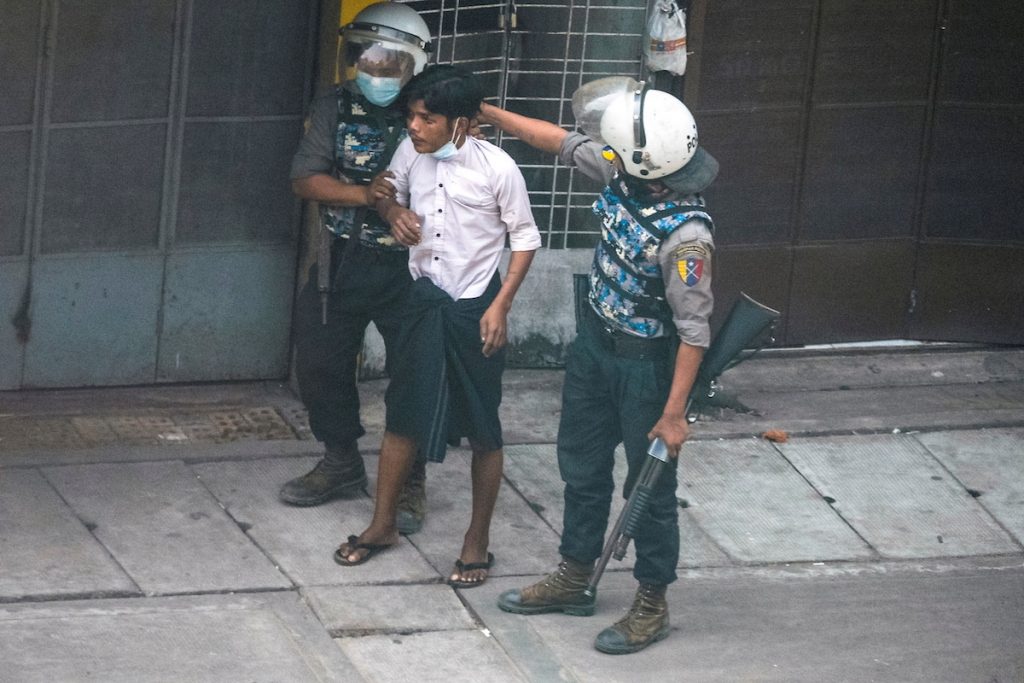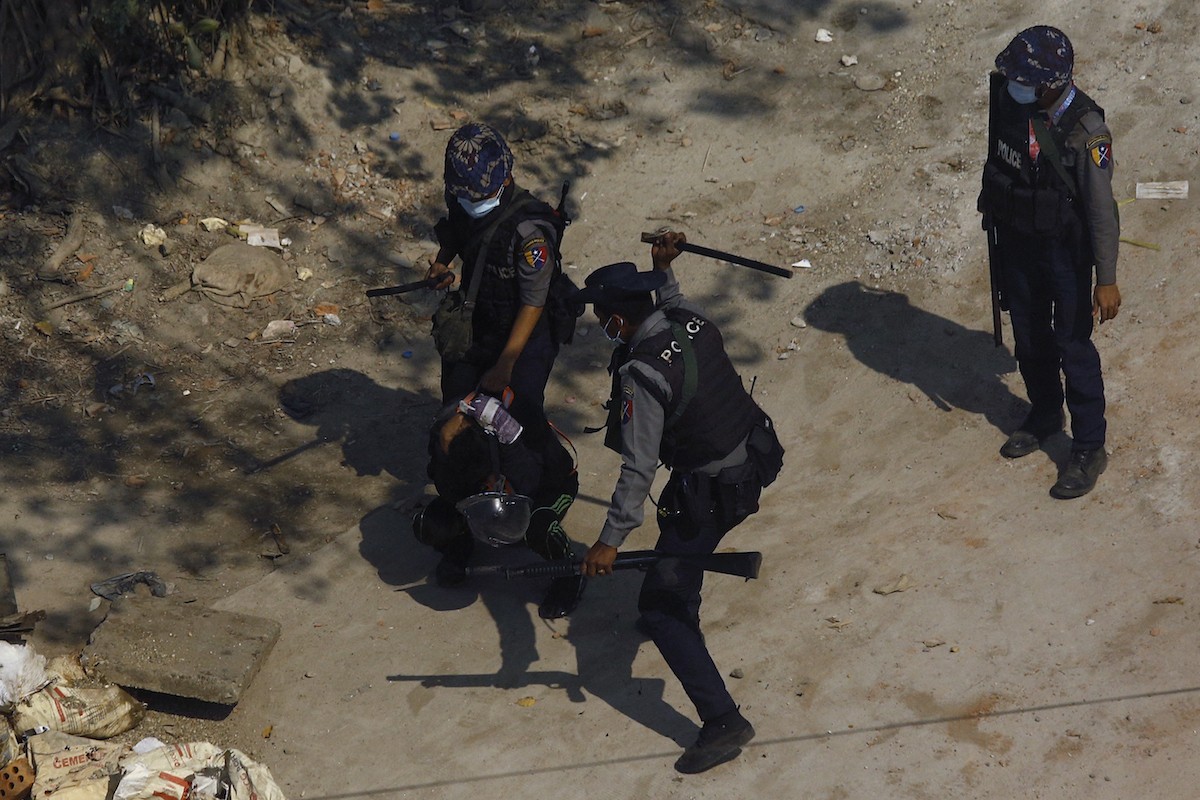Hundreds of people have been forcibly disappeared by Myanmar’s military junta since the Feb. 1 coup, a leading international rights group has said.
Human Rights Watch (HRW) said that Myanmar authorities have taken into custody politicians, election officials, journalists, activists, and protesters. The military have refused to confirm their location or allow access to lawyers or family members in violation of international law, the rights group said in a statement April 2.
“The military junta’s widespread use of arbitrary arrests and enforced disappearances appears designed to strike fear in the hearts of anti-coup protesters,” said Brad Adams, HRW’s Asia director.
“Concerned governments should demand the release of everyone disappeared and impose targeted economic sanctions against junta leaders to finally hold this abusive military to account,” he said.
The country has been in chaos for two months following the military’s overthrow of Aung San Suu Kyi’s elected administration, which has sparked anger across towns and cities and reignited hostilities between the armed forces and ethnic minority insurgents in several different regions.
The rights group said the security forces have arrested many people suspected of participation in anti-coup demonstrations or in the opposition Civil Disobedience Movement during nighttime raids on homes throughout the country.
The non-governmental organization, Assistance Association for Political Prisoners (AAPP), told HRW they could confirm the location of only a small fraction of the more than 2,500 recent detainees they have identified.
HRW spoke to family members, witnesses, and lawyers of 16 people feared to have been forcibly disappeared since the coup.
Many friends and family members of anti-coup protesters who have been arrested told HRW they do not know exactly where the person was being held, heightening concerns about their safety and well-being.
In many cases, families have only received information informally about the location of their family member, such as when newly released detainees notify family members or lawyers that they had seen a person who had been detained.
Some families believe that because a prison accepts a package for their family member, it is most likely the place where their relative is being held.
However, the rights group said this is conjecture and does not relieve the authorities of their obligation to provide information on a detainee’s whereabouts, produce a detainee in court within 48 hours, and allow access to counsel and family members.

HRW pointed out that enforced disappearances are grave violations of international law, and when committed as part of a widespread or systematic attack on a civilian population, are crimes against humanity.
“Enforced disappearances are a heinous crime, not least because of the anguish and suffering caused to family and friends,” Adams said.
“Myanmar’s security forces have continually flouted any respect for human rights, but they should know that they will be held accountable for the disappearances of these individuals and for the safe return of everyone forcibly disappeared.”
The right’s group’s statement comes as activists in Myanmar held candle-lit protests overnight and scrambled to find workarounds for a new internet shutdown on April 2, as opponents to the military’s bloody crackdown on dissent vowed no letup in efforts to unseat the ruling generals.
Late on April 1, protesters spread a call for a “flower strike” at bus stops where demonstrators killed by security forces had departed on their last journeys.
Some 543 people have been killed in the uprising, according to AAPP. The military has repeatedly said those killed had instigated violence.
With Reuters







